
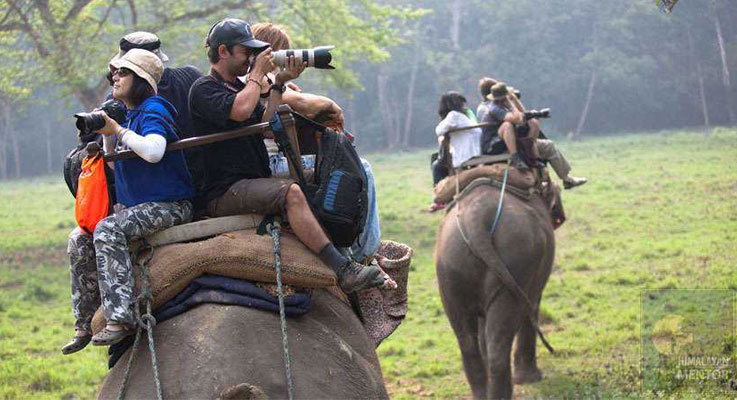
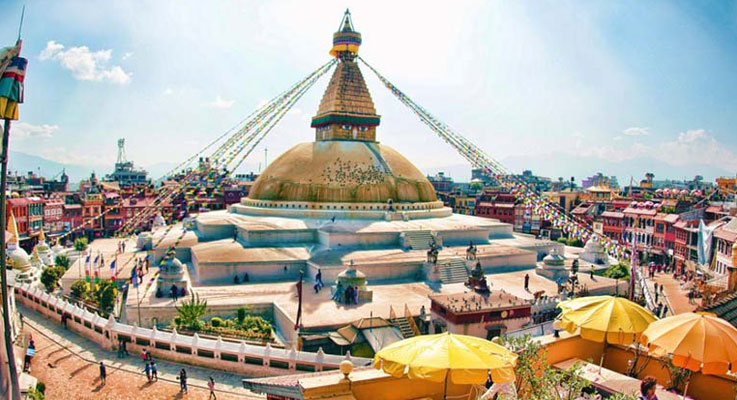
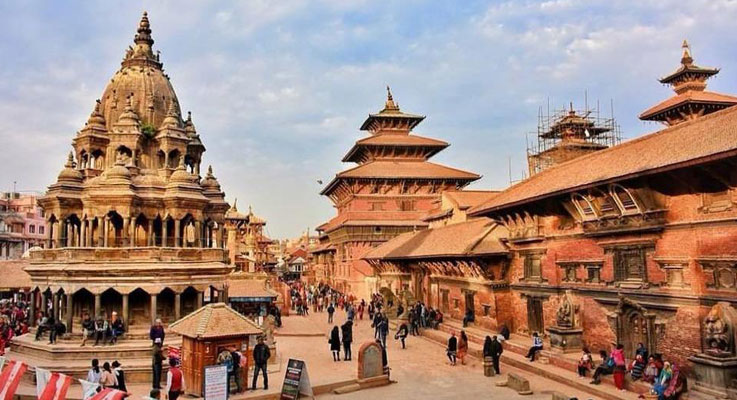
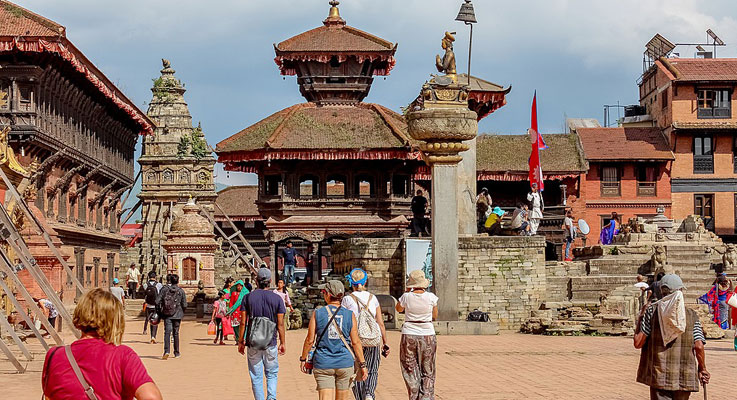
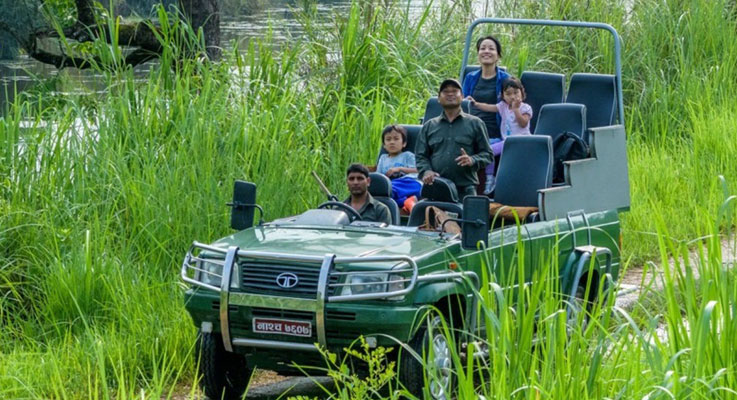
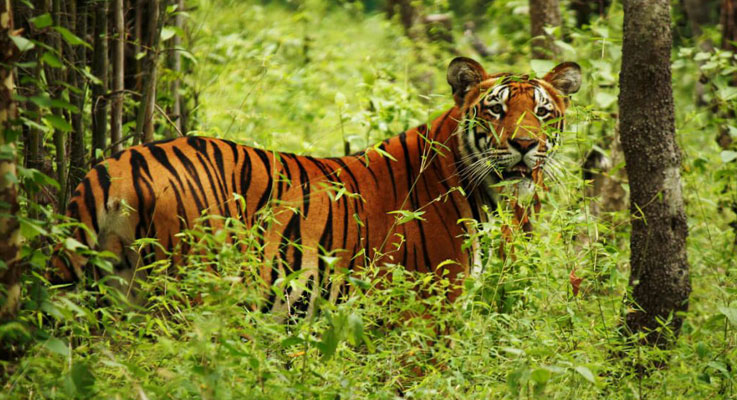
kathmandu - chitwan - pokhara
-
-

-
Duration
9 days
-
-
-

-
Group
16 Pax
-
-
-

-
Difficulty
Easy
-
-
-

-
Accommodation
Hotel / Lodge
-
-
-

-
Season
All Season
-
Discover the magic and mystery of Kathmandu – immerse yourself in the fascination throughout the colorful array of bustling streets, rich historic heritage, exquisite temples and religious sites. Witness as well as experience the unique, exotic Nepalese culture and festivals up close. Meandering drive to the hilltop of Nagarkot for a breathtaking sunrise. It’s the perfect place to view many of the Himalayan greats such as Manaslu, Ganesh Himal, Gauri Shanker as well as Mount Everest; we believe it’s the ideal way to begin your journey.
In Pokhara, the delightful scenic lakeside town with the spectacular backdrop of Machhapuchhre rising behind it all creates an ambiance of peace and relaxation. Pokhara is nestled in a tranquil valley and sports a tropical feel, a fact well appreciated by the beautiful diversity of flowers that bloom throughout. There are innumerable must-see places to discover, from the holy Gupteshower cave to the historical museums(dedicated to the famous Gurkha Warriors), Sarangkot hill and the World Peace Pagoda.
While you're in the Chitwan National Park, climb aboard the local boats to observe crocodiles along the banks. Surrender to the pure pleasure of jungle activities! Safari excursion includes elephant safari, canoeing and bird watching. Unlike African animals, those in Chitwan tend to be rather solitary and shy. But our expert guides knows how to track these elusive creatures and you can enjoy a glimpse or two of some of these endangered animals. We explore the park in a jeep, looking for rhinos, tigers, elephants, wild boars and the masses of beautiful birds living here.
Itinerary
-
Day 1
Arrival in Kathmandu
Upon arriving at at Tribhuwan International Airport in Kathmandu, you will be received by our airport representatives who will warmly greet you and transfer to the hotel on a private tourist vehicle. We provide 3-star accommodation in the city and we arrange for a trip briefing with dinner in the evening.
-
Day 2
Visit old town of Kathmandu
A professional guide and vehicle are provided for a day of sightseeing in and around Kathmandu city. We visit some of the UNESCO World Heritage Sites in the city along with other interesting cultural monuments that dot the valley. These include Boudhanath Stupa (the largest Buddhist shrines in the world), Pashupatinath (the holiest Hindu temple in the world), Durbar Squares (Palaces and fortresses of medieval Kings), along with other popular cultural attractions. We get to observe the lifestyle of Nepalese people, holy sadhus and monks, fascinating history as well as awe-inspiring architecture.
-
Day 3
Drive from Kathmandu to Pokhara
A fascinating and scenic 6-hour drive from Kathmandu takes us to the picturesque valley of Pokhara. On a clear day, views of Ganesh Himal, Himalchuli, Manaslu, Lamjung Himal, Annapurna will be seen from this lakeside city famous for Phewa Lake, Peace Pagoda and of course, the mountain views. We spend the afternoon in leisure and spend some time sightseeing in Pokhara.
-
Day 4
Sightseeing in Pokhara
On this day, you will venture for an awe-inspiring sightseeing over Pokhara. A private vehicle and a professional tour guide will be provided. The places we visit includes Phewa Lake and Barahi Temple, Seti River Gorges, Devi's fall, Gupteswar Cave, Tibetan Refugee Camps, Museums and so forth.
-
Day 5
Drive from Pokhara to Chitwan National Park
We will leave for the Chitwan National Park, the first national park of Nepal, established in 1973. There are more than 43 species of mammals in the park. The park is especially renowned for its protection of the endangered one- horned rhinoceros, tiger, and gharial crocodile along with many other common species of wild animal. On reaching the resort in the National Park, our Guest Relations Officer will brief guests after which you will be participating in an elephant safari, jungle walk, nature walk with boat ride and dinner will be ready at about 8pm. Overnight at a hotel.
-
Day 6
Activities in the Chitwan National Park
An early morning wake-up call followed by tea/coffee. The early morning tour provides you one of the best times to see the wildlife at its best with bird watching, elephant safari and jungle walk. After breakfast a 45-minute walk through the grassland and forest upstream of the Narayani River. Climb aboard the local boats to observe crocodiles along the banks while floating back to the camp to enjoy lunch. Late afternoon a guide will take you for elephant safari and jungle walk, visit the observation tower, nature walk with boat ride, back to the camp and have dinner. Overnight at a hotel.
-
Day 7
Drive from Chitwan to Kathmandu
You will have the evening for leisure and some rest in Kathmandu. You may want to stroll along the streets and visit the Narayanhiti Palace Museum at the heart of the city, or perhaps do some shopping. Overnight at a hotel.
-
Day 8
Leisure day in Kathmandu
This is a leisure and free day in Kathmandu for exploration. You are free to go souvenir shopping, spa and more exploration of the city, or extend your trip to include bungee jumping, rafting, mountain biking, Everest mountain flight and other adventurous activities. In the evening, we will have a farewell dinner at Mul Chowk Restaurant’s cozy and elegant dining ambience.
-
Day 9
Departure from Nepal
The trip concludes today. You will be dropped at Kathmandu's Tribhuwan International Airport by our airport representative for your flight departure from Nepal.
What's included
Price Details
Please enquire with us for prices
Price Includes
- - All ground transportation by private vehicle for airport and hotel pick up/drop off, sightseeing and transfers
- - All domestic flights (if any)
- - Accommodation in teahouses and hotels
- - All meals during trek
- - Entry permit to parks, monuments and cultural landmarks
- - Trekking guide(s), porter(s) and driver(s) their daily wages, food, accommodation and other expenses
- - Comprehensive medical kit
- - In case of emergency, we can send helicopters for evacuation, manage all paperwork, and deal with related insurance companies (provided the client has valid insurance)
Not included
Price Excludes
- - International airfare and airport departure tax
- - Travel insurance covering medical treatment and evacuation by ground and air
- - Nepal entry visa, obtained upon arrival at the Tribhuwan International Airport in Kathmandu
- - Rescue and evacuation
- - Extra road transport/flight cost in case member returns earlier
- - Lunch and dinner in Kathmandu and if applicable, in Pokhara
- - Items of personal nature like laundry, communication and bar bill
- - Tips for trip staff and driver. (Tipping is appreciated)
- - Other expenses not mentioned in the Price Includes section
Life on Trek
Trekking staff
Whilst on the trek, the Nepali guides and porters will ensure that you are well looked after. Every trek has an English speaking guide, known as the Sirdar, who is in overall charge. It is his responsibility to organize the trek en route and manage the guides and porters and deal with the local peoples and they are experts in trek organization, as well as being able to discuss the local culture, religion, and landscape. In addition there will be other guides, sometimes referred to by the generic term Sherpa, who will be your walking companions on the trek and will assist the Sirdar in organizing the logistic of the trek. On camping treks there will be full kitchen crew who are responsible for all aspects of catering. And finally there will be porters who are the transportation system of the Nepali mountains. They will carry the duffle bags and other equipment as necessary.
Accommodation
- Fully equipped Camping treks - accommodation is provided in spacious 2 person tents. We use this method for our climbing trips and some treks where lodges are less frequent.
- Lodge trek - accommodation is provided in the local Nepali lodges, some times known as tea- houses. It is usually necessary to share a double room. We use this method for our treks in the Annapurna and Everest regions.
Food
On camping treks, all food is prepared by the trek cook - an expert in preparing delicious camp food. And most importantly, special care is taken to provide well - boiled, purified drinking water. On lodge treks, food is provided in the lodge and this ranges from delicious local specialties to common western dishes. If necessary, bottled water can be purchased from the lodges for a small fee, although many trekkers prefer to use fresh water with the added precaution of a purifying agent. You could bring some Chocolate or special energy drinks for yourself as these are hard to get in the Himalayas.
A typical trekking day
A typical day revolves around the Nepal sunrise and sunset. The day starts with an early wake up call. You then pack up your gear and enjoy a rousing breakfast before starting your morning's walk. The Sirdar will already be organized loads to porters and or animals, and your group will then set off on the trail at a leisurely pace, enjoying the view and stopping to take photographs. After 2-3 hours walk you stop for lunch. This lasts for about 90 minutes which gives you time to relax, or explore the local village. The afternoon's walk is usually shorter and we arrive at the campsite or tea-house in plenty of time to relax and savour the surroundings. Later in the evening dinner is served, giving you an opportunity to sample the delicious food, talk over the day's events, and look forward to another special day on the trails of Nepal.
Health and safety on the trek General
- A comprehensive first aid kit is carried on the trek. However we advise that you also carry your personal first aid kit which includes specific items of preference.
- We will, in an emergency, arrange for helicopter evacuation. (Note that you are required to hold insurance for this unlikely eventuality).
- All meals on our camping trips are prepared to strict hygiene standards specifically for our groups, under the supervision of the trekking staff.
- We use tea-houses that we now have strict hygiene standards and provide a broad menu.
High Altitude
Anyone can be affected by Altitude Sickness. However, our itineraries are specifically designed to minimize the risks associated with trekking to high altitudes by building in acclimatization and rest days. In the event of any symptoms we will ensure that the individual descends to a lower altitude to gain a quick recovery.
And finally……….. It must be stressed that whilst trekking in the Nepal Himalaya is challenging and rewarding, you must be prepared for he occasional inconvenience or discomfort. The correct mental attitude to trekking is as important as being physically prepared.
Equipments
All equipment and food, and your own personal backpacks are carried by the porters or pack animals. It is only necessary to carry a camera or small daypack ! On camping treks all necessary camp equipment is provided - this includes dining tent, dining table and chairs, toilet tent, foam mattresses, and all cooking equipment. The only kit that you will need to bring is your own personal equipment and clothing.
Recommended Trekking Kit
The following is a list of clothing and accessories that we recommend that you take with you. This is not intended to be a comprehensive clothing and equipment list, rather it is intended to act as a reminder of those items that we feel are essential for your comfort and convenience. However we recognize that you may have your own personal preferences for clothing which may be equally as suitable.
Footwear
- Walking boots with suitable ankle support that have been worn - in prior to the trek, and which are waterproof.
- Trainer or casual shoes, for trekking andor for traveling
- Warm socks for colder areas.
- Gaiters ,,in case of rain or snow.
Leg wear
- Loose, casual trousers for trekking.
- Thermal leggings for colder areas.
- Long skirt for women as an alternative to trousers
- Waterproof trousers
Body
- Selection of T-shirts, and long sleeved shirts, preferably not cotton.
- Thermal shirt for colder areas.
- Warm shirt, possibly fleece, for colder areas.
- Fleece jacket or warm wool jumper.
- Windproof, waterproof outer shell garment for higher altitudes.
- Down jacket (optional for cold nights & mornings: can be hired in Kathmandu cheaply)
Head Hands
- Wool or fleece hat, or balaclava.
- Hat or cap for sun protection while trekking.
- Sunglasses or goggles.
- Sunscreen lotion and lip balm
- Warm gloves.
Other Items
- Strong rucksack, or large holdall to be carried by porters
- Day sack to be carried personally.
- Plastic bags or stuff sacks to storeseparate trekking gear inside your main bag.
- One liter water bottle.
- Personal first aid kit to include essential items.
- Sleeping bag 4 season.
- Torch, ideally head torch.
- Camera and film! - for those not to be forgotten shots of the Himalaya.
- Toilet items and towel.
- Large handkerchief bandana for neck.
Recommended Mountaineering Kit
In additional to the items mentioned above for trekking the following is a list of the additional specialist items which are required for the trekking peaks.
- Plastic or Leather mountaineering boots, with gaitors & crampons that have been tested for a good fit.
- Fleece trousers or salopettes.
- Additional mitts and gloves suitable for climbing.
- Ice ace, and ski poles (Note: ice axe can hired in Kathmandu)
- Climbing harness
- 2 X tape slings
- 2 X screw gate karabiners.
- Descended abseil device Ascender
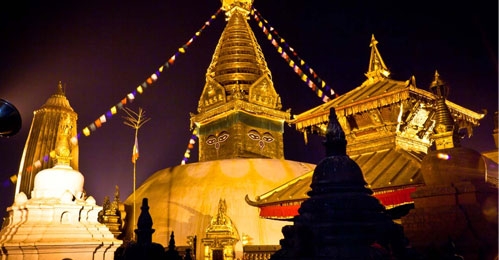
 6 days
6 days
 Easy
Easy
